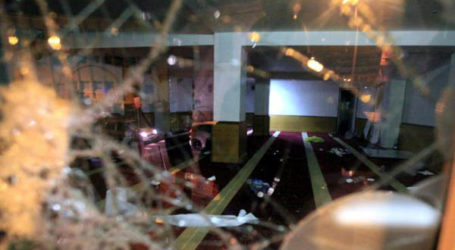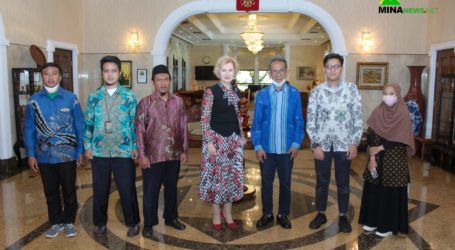BULGARIA’S INTERFAITH RAMADAN IFTARS

Sofia, 12 Ramadhan 1434/19 Juli 2013 (MINA) – In the holy fasting month of Ramadan, Muslims and Christians come together to enjoy breaking fast together in interfaith events that unites followers of both faiths.
“We bring Muslims and Christians together and create a beautiful atmosphere serving delicious meals,” Akif Mehmet Akif, the Mayor of Bulgarian Mestan province, told Timeturk. according to OnIslam report monitored by Mi’raj News Agency (MINA).
“Muslims and Christians have no problems in the town.”
Like millions of Muslims worldwide, Bulgarians started fasting on Wednesday, July 10.
During Ramadan, adult Muslims, save the sick and those traveling, abstain during daylight hours from food, drink, smoking and sex between dawn and sunset.
They dedicate their time during the holy month to become closer to Allah through prayer, good deeds and self-restraint.
Fasting is meant to teach Muslims patience, self-control and spirituality, and time during the holy month is dedicated for getting closer to Allah though prayers, reading the Noble Qur’an and good deeds.
Regional Mufti of Kardzhali Beyhan Mehmed said that people who were interested in reciting Qur’an and night prayers throng to mosques.
Yet, interfaith iftars added a special flavor to this year’s Ramadan.
For Stanka Miteva, a Bulgarian citizen who attended a fast breaking meal with her Muslim friends, the experience was enlightening about Muslim traditions. “We live together in peace,” Miteva said.
“We celebrate our religious festivals together. I have never seen any misdeeds from Muslims.”
According to official figures, Muslims, mostly ethnic Turkish descendants of the Ottoman Empire’s reach into Europe, make up more than 12 percent of Bulgaria’s 7.8 million population.
The Fatwa House puts the percentage at nearly 25. They coexist with Christian compatriots in a culture known as “komshuluk”, or neighborly relations. (T/P012/E1)
Mi’raj News Agency (MINA)





